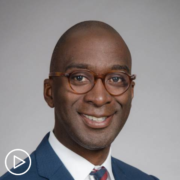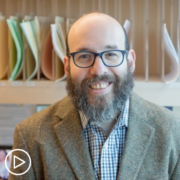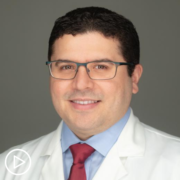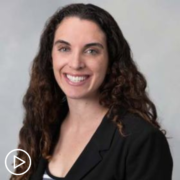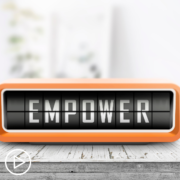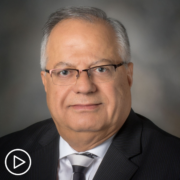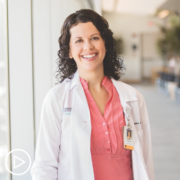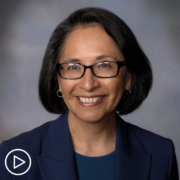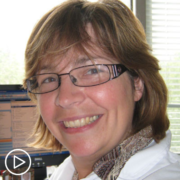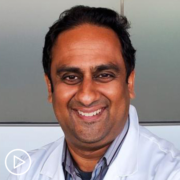Dr. Nizar Tannir: Why Is It Important for You to Empower Patients? from Patient Empowerment Network on Vimeo.
Renal medullary carcinoma (RMC) can be a devastating cancer, but healthcare providers can help make a substantial impact. RMC expert Dr. Nizar Tannir from MD Anderson Cancer Center shares how he creates a positive, healing relationship with patients and what he views as the future of RMC patient care.
See More from Empowering Providers to Empower Patients (EPEP)
Related Resources:
Transcript:
Dr. Tannir:
It all starts with listening to the patient and taking their history. And their symptoms very seriously not to dismiss what they tell you. That’s the first step patients who seek our help, they come to the provider, they come to the physician to help them seeking healing. I think it’s fundamental to listen, listen carefully take every symptom they report to us seriously. And when we think of a diagnosis of RMC as physician first, because the patient comes first before anything else. We provide them with all the information we have, we may not have all the information about their diagnosis or about the future.
When they ask us what will the future look like? What should they expect? We may not be able to answer that the question, but we can still provide them with help and take their question seriously and say, “I don’t know the answer to your question, I don’t know what the future will bring, but I’m going to tell you, I will not leave any stone unturned until I get to the bottom of it. And until I am able to find an answer to your question. “Then second, for young investigators who aspire to have a career in medicine, in medical research, in scientific research RMC is the most fulfilling field that you can make an impact on humanity.
For all of you who are ambitious, aspirational, hardworking, well-trained, smart, want to make a difference in the world and help humanity, RMC will provide you with a golden opportunity to make that difference, because patients with RMC are young, are all active before they come to us. Sick, debilitated, devastated with devastated family members. It is an aggressive disease that if not treated aggressively, urgently, unfortunately, patients may not make it. So it behooves us to provide them with the best care and research will give us the opportunity to, in the future, hopefully cure this disease once and for all. And what’s more rewarding for a career than seeing young patients achieve a cure from a devastating cancer that may, unfortunately, take their life away in few months or a year or two, if they can live for many many years to their fullest potential as a normal human being, to live to the final aging and give the society back, its citizens to be productive in society.
Give those young individuals the chance to go back to work or back to college. Maybe start a family, get married and have a family and have children. What is more rewarding than this? I think empowering yourself. Empower yourself with that golden opportunity. Empower yourself with that career that can help you make a difference in the world so that the world will not be deprived of young people like Herman Connor who could have not had that opportunity but now is alive and well and a productive member of society and a citizen 11 years after diagnosis. So imagine what you could do to help another patient like Herman and give that patient the opportunity to be cured.

